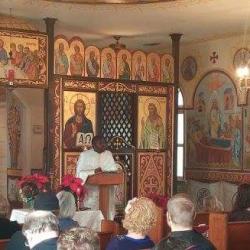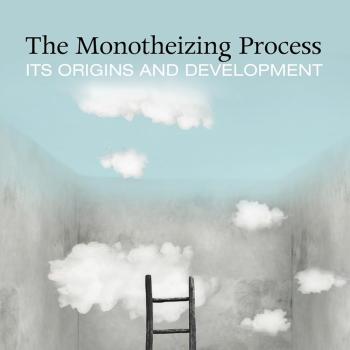The first time I walked into a Pentecostal church as a sixteen-year-old, I didn't know quite what to expect. Entering First Assembly of God (AG) in Columbia, South Carolina that Sunday morning was different than anything I had ever experienced. I could feel a sense of excitement, freedom, and spontaneity. Then, I heard something I had never heard before in a church service—voices other than the pastor's: audible gifts of the Spirit operating amidst seasons of worship, prophecies, prayers for healing and, yes, speaking in tongues. And, on that day it honestly was the speaking in tongues that most caught my fascination. Today, however, there is a perceived trending away from exercising this gift in public worship, even amidst self-described "Pentecostal" communities.
Although speaking in an unknown tongue was something I had experienced only a few months earlier, attending this new church where it was accepted, even celebrated, was something I had not experienced. There was one thing I knew, another I did not. What I knew was that this experience of speaking in tongues was something quite amazing. While I had long wondered if God may ever speak to me in some way, this gift presupposed the possibility that through charismata, a "grace gift," his Spirit could speak through me—an extraordinary thought for a quite ordinary sixteen-year-old.
What I did not know at that time was just how powerfully this thing called speaking in tongues and the fostering Pentecostal movement it "evidenced" was sweeping the planet. Nor did I realize the iconic and symbolic role it played in classical Pentecostalism. I have since come to find out that the movement that began with a handful of tongue-talking worshippers on Azusa Street in Los Angeles in 1906 grew to a following of twelve million by 1972. Today, quite remarkably, Pentecostals in their various forms have reportedly grown to almost 600 million worldwide, approximately one-fourth of all of Christendom. The respected historian Vinson Synan predicts that by the end of the twenty-first century Pentecostals will comprise half of all Christians in the world. And, although not a member of the Assemblies of God (AG) himself, he also estimates that at her present rate of growth, the AG will become the largest Protestant denomination in the world. Statistics verify this trend.
"Uncontrollable Growth"
In his new book, Spirit-Empowered Christianity in the 21st Century, Synan notes that while "the greatest growth [among Pentecostals and Charismatics] has been and continues to be in Africa, Asia, and Latin America," the growth "has been much smaller in North America and Europe." More people now attend AG churches in Sao Paulo than in the entire United States! The AG has 2.9 million adherents in the United States, while Brazil alone, conservatively estimated, has over twenty million. Today, over 95 percent of AG adherents are actually outside of the United States.
Just what accounts for the dramatic differences in rates of growth among Pentecostals in the United States and overseas? For one thing, Synan says, "it seems that signs and wonders are more prevalent in less developed parts of the world." The supernatural in general is more acknowledged in many spheres of life and faith in the "developing" parts of the world. David Barrett's monumental work, The World Christian Encyclopedia confirms that the widest growth in evangelism regularly correlates with the welcoming of the Holy Spirit's ministry of the supernatural—through gifts, signs and wonders. He further states that "many situations of uncontrollable growth" are occurring where the Holy Spirit's gifts are allowed.
Holding Their Tongues?
Speaking in tongues has arguably been the most emphasized charismata of the modern Pentecostal movement. Although the leading Pentecostal denominations in the world all emphasize this gift, some do so more so than others. In fact, the largest Pentecostal organization in the world, the AG, considers tongues "the initial, physical evidence of the Baptism in the Holy Spirit"—and refers to this as its "distinctive doctrine." It is considered the primary tangible evidence that a Christ-follower has experienced a "second work of grace," called the Baptism in the Holy Spirit, which believers are (according to doctrinal statements) supposed to "ardently expect" and "earnestly seek," Oddly, however, it seems that this hallmark phenomenon over the past decade has on many fronts been deemphasized, displaced and, in some cases, even placed on hold within churches that still consider themselves "Pentecostal."





